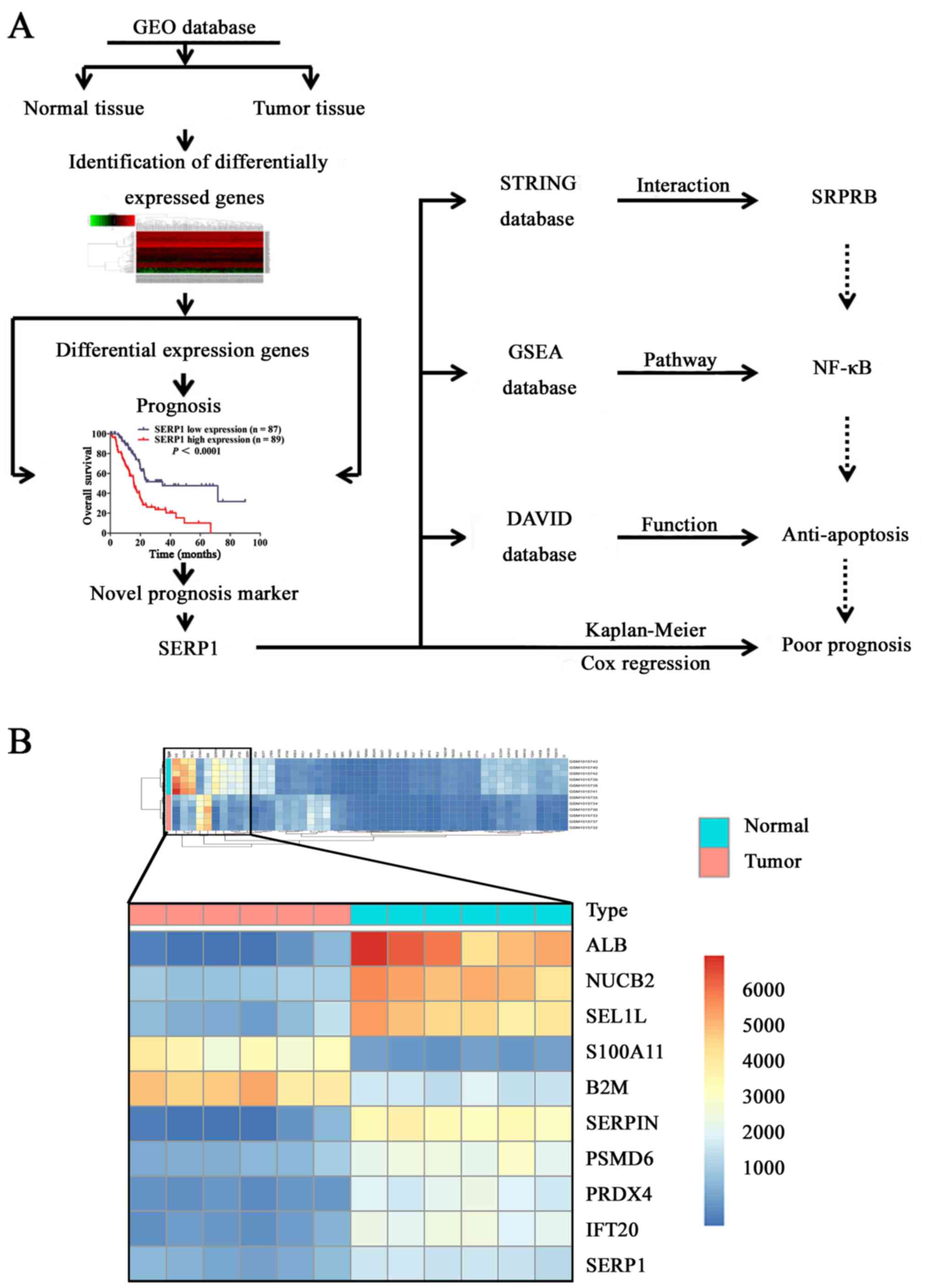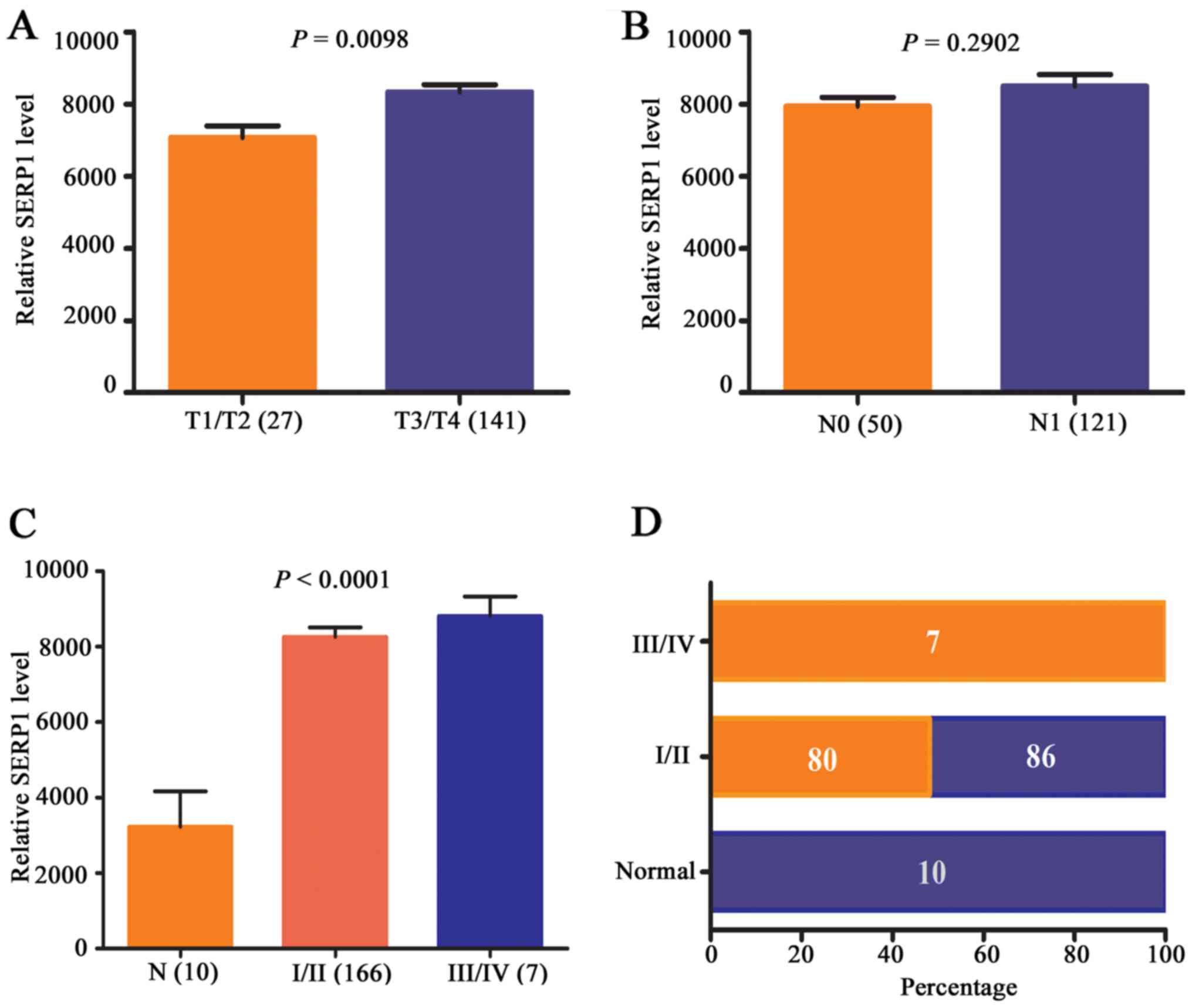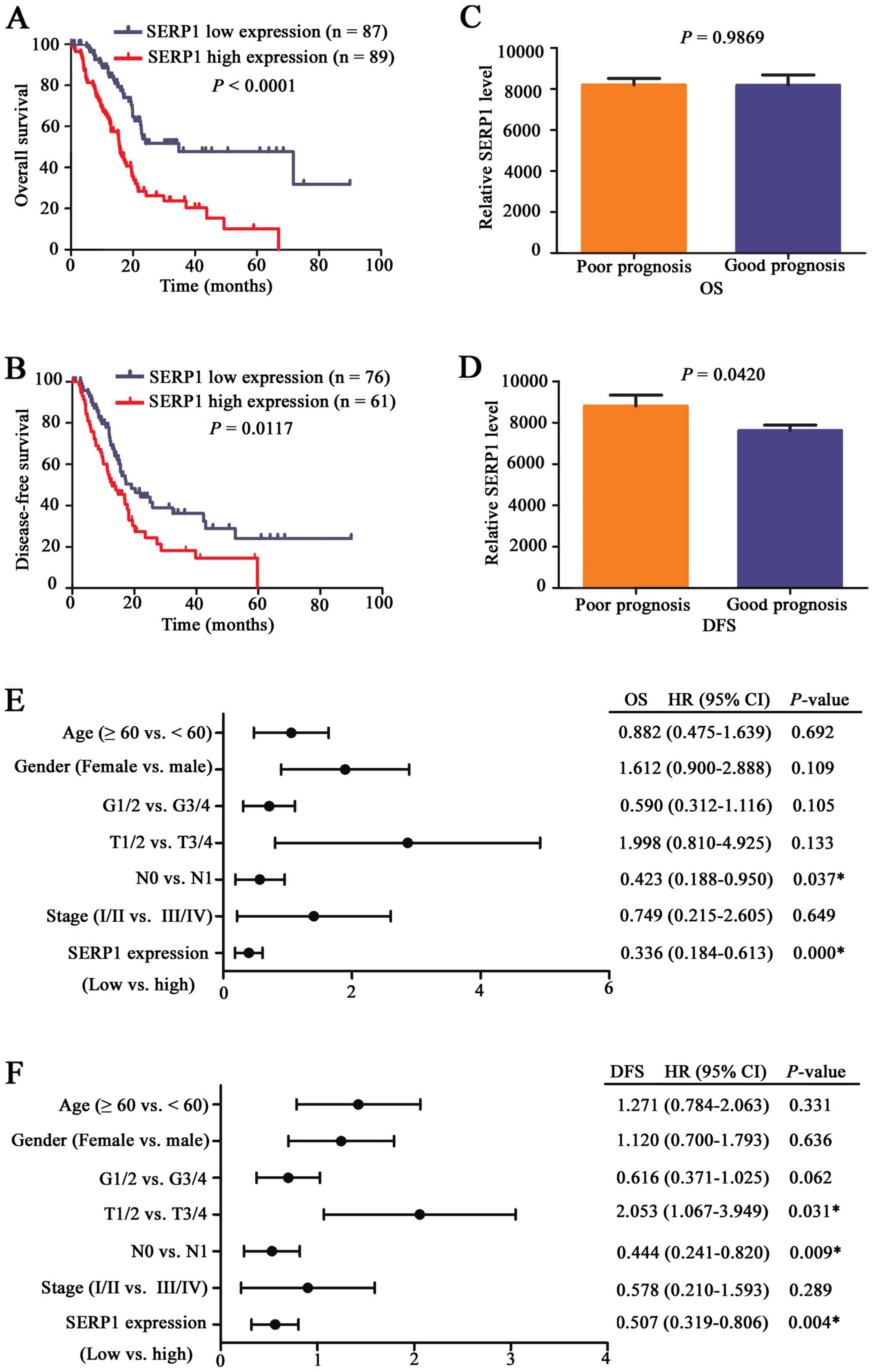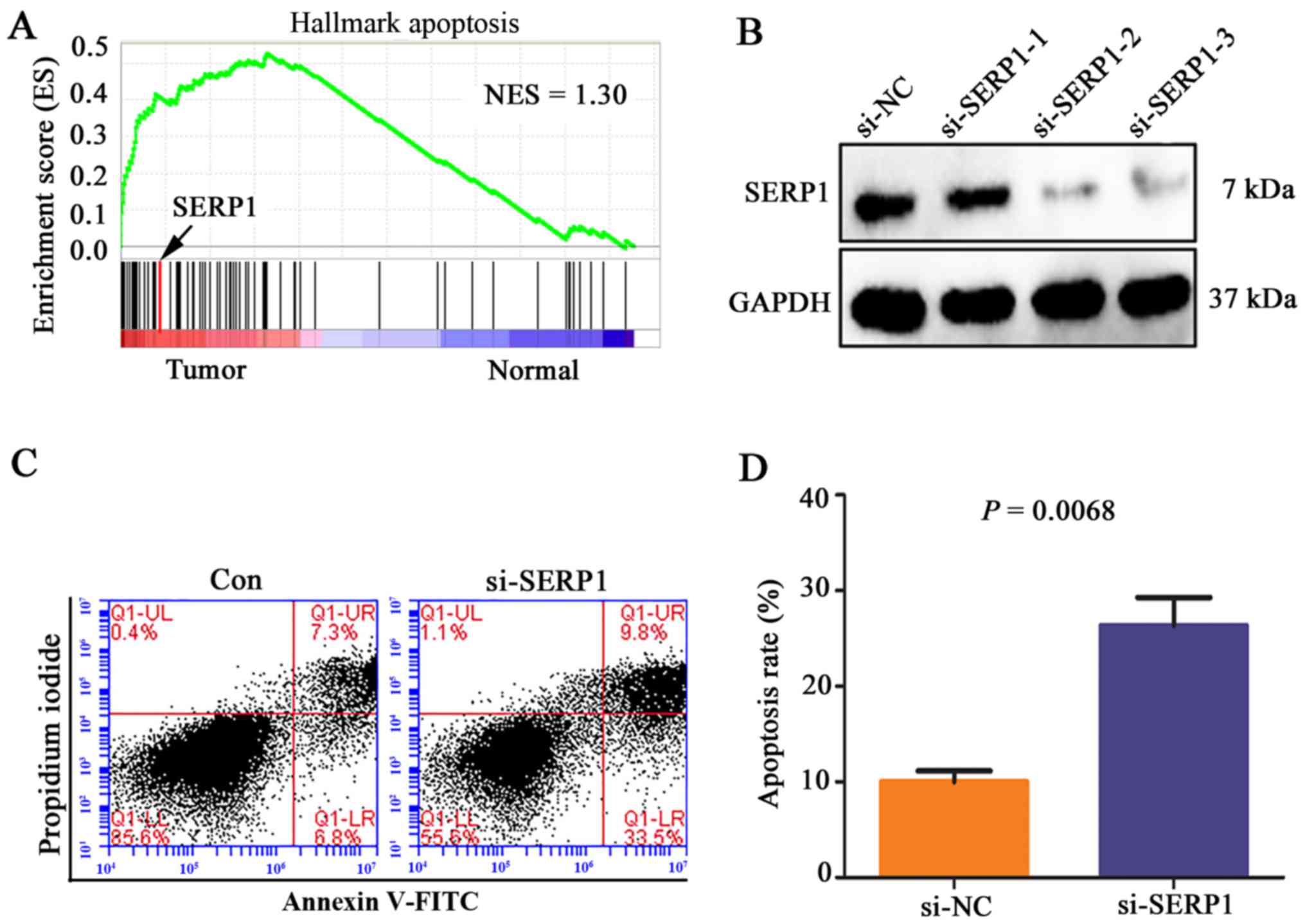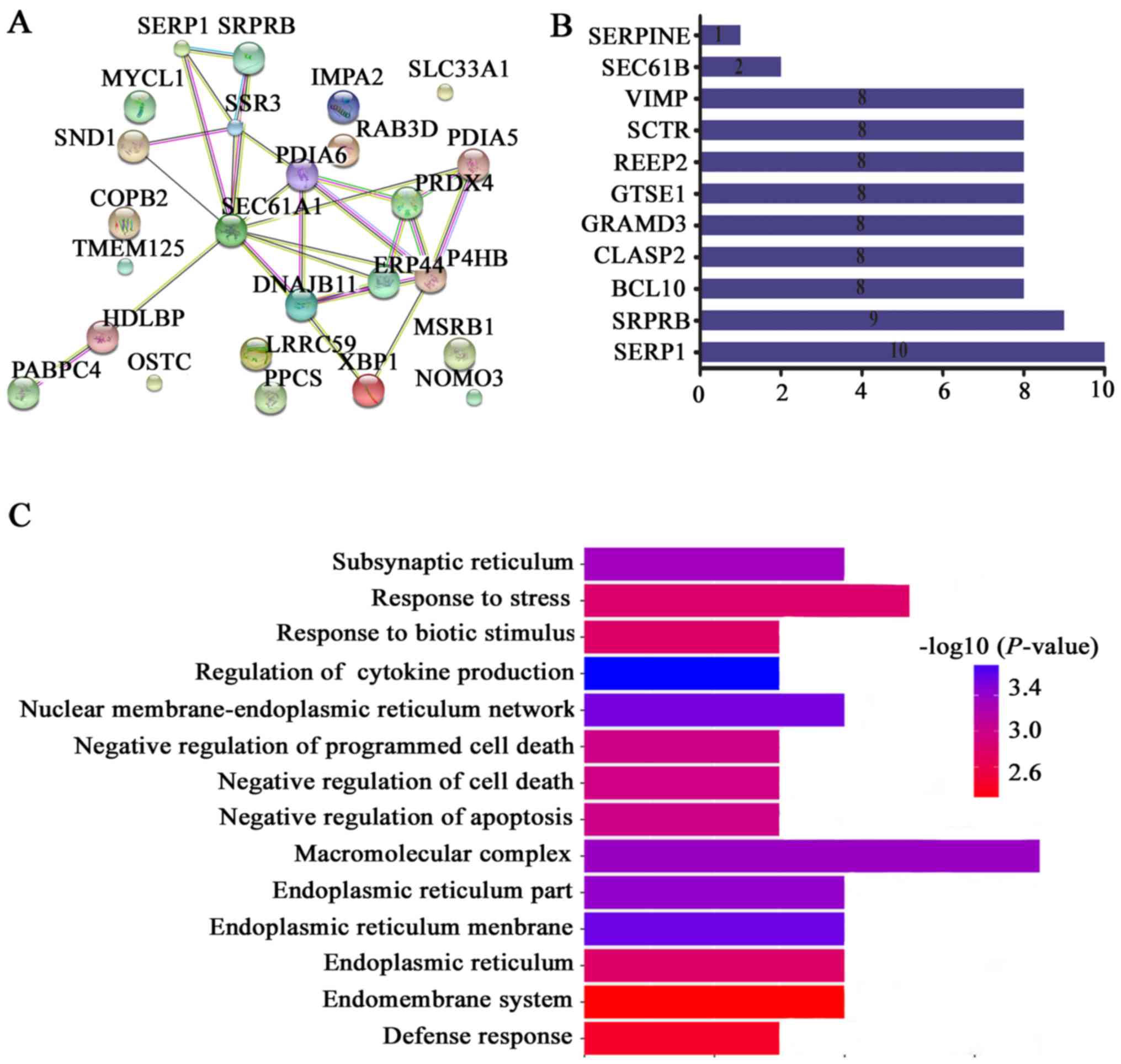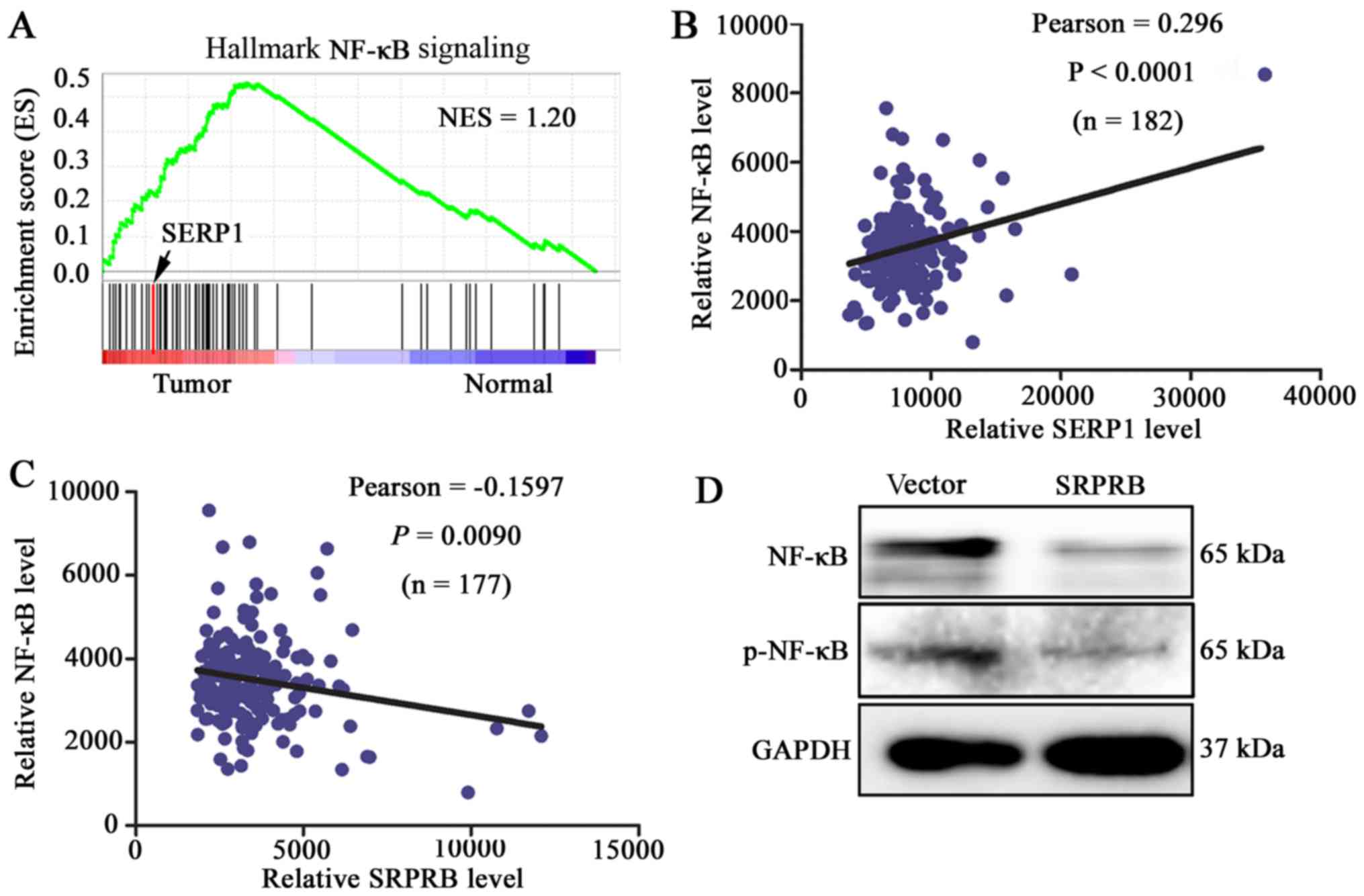|
1
|
Martinez-Useros J and Garcia-Foncillas J:
The role of BRCA2 mutation status as diagnostic, predictive, and
prognosis biomarker for pancreatic cancer. Biomed Res Int.
2016:18693042016. View Article : Google Scholar
|
|
2
|
Swords DS, Firpo MA, Scaife CL and
Mulvihill SJ: Biomarkers in pancreatic adenocarcinoma: Current
perspectives. Onco Targets Ther. 9:7459–7467. 2016. View Article : Google Scholar : PubMed/NCBI
|
|
3
|
Pietrasz D, Pécuchet N, Garlan F, Didelot
A, Dubreuil O, Doat S, Imbert-Bismut F, Karoui M, Vaillant JC, Taly
V, et al: Plasma circulating tumor DNA in pancreatic cancer
patients is a prognostic marker. Clin Cancer Res. 23:116–123. 2017.
View Article : Google Scholar
|
|
4
|
Tanouchi A, Taniuchi K, Furihata M,
Naganuma S, Dabanaka K, Kimura M, Watanabe R, Kohsaki T, Shimizu T,
Saito M, et al: CCDC88A, a prognostic factor for human pancreatic
cancers, promotes the motility and invasiveness of pancreatic
cancer cells. J Exp Clin Cancer Res. 35:1902016. View Article : Google Scholar : PubMed/NCBI
|
|
5
|
Sun B, Liu X, Gao Y, Li L and Dong Z:
Downregulation of miR-124 predicts poor prognosis in pancreatic
ductal adenocarcinoma patients. Br J Biomed Sci. 73:152–157. 2016.
View Article : Google Scholar : PubMed/NCBI
|
|
6
|
Nuzhat Z, Kinhal V, Sharma S, Rice GE,
Joshi V and Salomon C: Tumour-derived exosomes as a signature of
pancreatic cancer - liquid biopsies as indicators of tumour
progression. Oncotarget. 8:17279–17291. 2017.
|
|
7
|
Chandra Gupta S and Nandan Tripathi Y:
Potential of long non-coding RNAs in cancer patients: From
biomarkers to therapeutic targets. Int J Cancer. 140:1955–1967.
2017. View Article : Google Scholar
|
|
8
|
Yang D, Shi J, Fu H, Wei Z, Xu J, Hu Z,
Zhang Y, Yan R and Cai Q: Integrin β1 modulates tumour resistance
to gemcitabine and serves as an independent prognostic factor in
pancreatic adenocarcinomas. Tumour Biol. 37:12315–12327. 2016.
View Article : Google Scholar : PubMed/NCBI
|
|
9
|
Li Q, Wang H, Zogopoulos G, Shao Q, Dong
K, Lv F, Nwilati K, Gui XY, Cuggia A, Liu JL, et al: Reg proteins
promote acinar-to-ductal metaplasia and act as novel diagnostic and
prognostic markers in pancreatic ductal adenocarcinoma. Oncotarget.
7:77838–77853. 2016.PubMed/NCBI
|
|
10
|
Tsuboi M, Taniuchi K, Furihata M, Naganuma
S, Kimura M, Watanabe R, Shimizu T, Saito M, Dabanaka K, Hanazaki
K, et al: Vav3 is linked to poor prognosis of pancreatic cancers
and promotes the motility and invasiveness of pancreatic cancer
cells. Pancreatology. 16:905–916. 2016. View Article : Google Scholar : PubMed/NCBI
|
|
11
|
Li X, Xiao Y, Fan S, Xiao M, Wang X, Zhu
X, Chen X, Li C, Zong G, Zhou G, et al: Overexpression of DIXDC1
correlates with enhanced cell growth and poor prognosis in human
pancreatic ductal adenocarcinoma. Hum Pathol. 57:182–192. 2016.
View Article : Google Scholar : PubMed/NCBI
|
|
12
|
Hori O, Miyazaki M, Tamatani T, Ozawa K,
Takano K, Okabe M, Ikawa M, Hartmann E, Mai P, Stern DM, et al:
Deletion of SERP1/RAMP4, a component of the endoplasmic reticulum
(ER) translocation sites, leads to ER stress. Mol Cell Biol.
26:4257–4267. 2006. View Article : Google Scholar : PubMed/NCBI
|
|
13
|
Kim HS, Chang I, Kim JY, Choi KH and Lee
MS: Caspase-mediated p65 cleavage promotes TRAIL-induced apoptosis.
Cancer Res. 65:6111–6119. 2005. View Article : Google Scholar : PubMed/NCBI
|
|
14
|
Guzmán EA, Maers K, Roberts J,
Kemami-Wangun HV, Harmody D and Wright AE: The marine natural
product microsclerodermin A is a novel inhibitor of the nuclear
factor kappa B and induces apoptosis in pancreatic cancer cells.
Invest New Drugs. 33:86–94. 2015. View Article : Google Scholar
|
|
15
|
Mak P, Li J, Samanta S and Mercurio AM:
ERβ regulation of NF-κB activation in prostate cancer is mediated
by HIF-1. Oncotarget. 6:40247–40254. 2015. View Article : Google Scholar : PubMed/NCBI
|
|
16
|
Simone De V, Franzè E, Ronchetti G,
Colantoni A, Fantini MC, Di Fusco D, Sica GS, Sileri P, MacDonald
TT, Pallone F, et al: Th17-type cytokines, IL-6 and TNF-α
synergistically activate STAT3 and NF-κB to promote colorectal
cancer cell growth. Oncogene. 34:3493–3503. 2015. View Article : Google Scholar
|
|
17
|
Dolcet X, Llobet D, Pallares J and
Matias-Guiu X: NF-κB in development and progression of human
cancer. Virchows Arch. 446:475–482. 2005. View Article : Google Scholar : PubMed/NCBI
|
|
18
|
Ma Q, Peng Z, Wang L, Li Y, Wang K, Zheng
J, Liang Z and Liu T: miR-19a correlates with poor prognosis of
clear cell renal cell carcinoma patients via promoting cell
proliferation and suppressing PTEN/SMAD4 expression. Int J Oncol.
49:2589–2599. 2016. View Article : Google Scholar : PubMed/NCBI
|
|
19
|
Kong FY, Wei X, Zhou K, Hu W, Kou YB, You
HJ, Liu XM, Zheng KY and Tang RX: Bioinformatics analysis reveals
distinct molecular characteristics of hepatitis B-related
hepatocellular carcinomas from very early to advanced Barcelona
clinic liver cancer stages. PLoS One. 11:e01582862016. View Article : Google Scholar : PubMed/NCBI
|
|
20
|
Chen Y, Yang Y, Sun M, Yan Z, Wu L, Cui X,
Zhang G, Morris SW and Zhang Q: Inhibition of caspase-8 activity
caused by overexpression of BCL10 contributes to the pathogenesis
of high-grade MALT lymphoma. Pediatr Blood Cancer. 58:865–871.
2012. View Article : Google Scholar
|
|
21
|
Staudt LM: Oncogenic activation of
NF-kappaB. Cold Spring Harb Perspect Biol. 2:a0001092010.
View Article : Google Scholar : PubMed/NCBI
|
|
22
|
Kuo SH, Chou CH, Cheng AL, Wang CW, Chen
YH and Chen RJ: Expression of BCL10 in cervical cancer has a role
in the regulation of cell growth through the activation of
NF-κB-dependent cyclin D1 signaling. Gynecol Oncol. 126:245–251.
2012. View Article : Google Scholar : PubMed/NCBI
|
|
23
|
Li Z, Zhang H, Chen Y, Fan L and Fang J:
Forkhead transcription factor FOXO3a protein activates nuclear
factor κB through B-cell lymphoma/leukemia 10 (BCL10) protein and
promotes tumor cell survival in serum deprivation. J Biol Chem.
287:17737–17745. 2012. View Article : Google Scholar : PubMed/NCBI
|
|
24
|
Martinez-Useros J and Garcia-Foncillas J:
Can molecular biomarkers change the paradigm of pancreatic cancer
prognosis? BioMed Res Int. 2016:48730892016. View Article : Google Scholar : PubMed/NCBI
|
|
25
|
Mucaj V, Lee SS, Skuli N, Giannoukos DN,
Qiu B, Eisinger-Mathason TS, Nakazawa MS, Shay JE, Gopal PP,
Venneti S, et al: MicroRNA-124 expression counteracts pro-survival
stress responses in glioblastoma. Oncogene. 34:2204–2214. 2015.
View Article : Google Scholar
|
|
26
|
Yamaguchi A, Hori O, Stern DM, Hartmann E,
Ogawa S and Tohyama M: Stress-associated endoplasmic reticulum
protein 1 (SERP1)/Ribosome-associated membrane protein 4 (RAMP4)
stabilizes membrane proteins during stress and facilitates
subsequent glycosylation. J Cell Biol. 147:1195–1204. 1999.
View Article : Google Scholar : PubMed/NCBI
|
|
27
|
Mujumdar N, Banerjee S, Chen Z, Sangwan V,
Chugh R, Dudeja V, Yamamoto M, Vickers SM and Saluja AK: Triptolide
activates unfolded protein response leading to chronic ER stress in
pancreatic cancer cells. Am J Physiol Gastrointest Liver Physiol.
306:G1011–G1020. 2014. View Article : Google Scholar : PubMed/NCBI
|
|
28
|
Faria D, Lentze N, Almaça J, Luz S,
Alessio L, Tian Y, Martins JP, Cruz P, Schreiber R, Rezwan M, et
al: Regulation of ENaC biogenesis by the stress response protein
SERP1. Pflugers Arch. 463:819–827. 2012. View Article : Google Scholar : PubMed/NCBI
|
|
29
|
Yan W, Wang WL, Zhu F, Chen SQ, Li QL and
Wang L: Isolation of a novel member of small G protein superfamily
and its expression in colon cancer. World J Gastroenterol.
9:1719–1724. 2003. View Article : Google Scholar : PubMed/NCBI
|
|
30
|
Zhang Y, Li Q, Zhu F, Cui J, Li K, Li Q,
Wang R, Wang W, Wang W and Yan W: Subcellular localization of
APMCF1 and its biological significance of expression pattern in
normal and malignant human tissues. J Exp Clin Cancer Res.
28:1112009. View Article : Google Scholar : PubMed/NCBI
|
|
31
|
Li Q, Yan W, Cheng S, Guo S and Wang W,
Zhang Z, Wang L, Zhang J and Wang W: Introduction of G1 phase
arrest in human hepatocellular carcinoma cells (HHCC) by APMCF1
gene transfection through the downregulation of TIMP3 and
upregulation of the CDK inhibitors p21. Mol Biol Rep. 33:257–263.
2006. View Article : Google Scholar : PubMed/NCBI
|
|
32
|
Yu M, Chen Y, He Y, Podd A, Fu G, Wright
JA, Kleiman E, Khan WN, Wen R and Wang D: Critical role of B cell
lymphoma 10 in BAFF-regulated NF-κB activation and survival of
anergic B cells. J Immunol. 189:5185–5193. 2012. View Article : Google Scholar : PubMed/NCBI
|
|
33
|
Kadirareddy RH, Vemuri SG and Palempalli
UM: Probiotic conjugated linoleic acid mediated apoptosis in breast
cancer cells by downregulation of NFκB. Asian Pac J Cancer Prev.
17:3395–3403. 2016.
|
|
34
|
Liu Y, Gao X, Deeb D, Zhang Y, Shaw J,
Valeriote FA and Gautam SC: Mycotoxin verrucarin A inhibits
proliferation and induces apoptosis in prostate cancer cells by
inhibiting prosurvival Akt/NF-κB/mTOR signaling. J Exp Ther Oncol.
11:251–260. 2016.PubMed/NCBI
|
|
35
|
Yang J, Li G and Zhang K: Pro-survival
effects by NF-κB, Akt and ERK(1/2) and anti-apoptosis actions by
Six1 disrupt apoptotic functions of TRAIL-Dr4/5 pathway in ovarian
cancer. Biomed Pharmacother. 84:1078–1087. 2016. View Article : Google Scholar : PubMed/NCBI
|
|
36
|
Xia W, Tian H, Cai X, Kong H, Fu W, Xing
W, Wang Y, Zou M, Hu Y and Xu D: Inhibition of SUMO-specific
protease 1 induces apoptosis of astroglioma cells by regulating
NF-κB/Akt pathways. Gene. 595:175–179. 2016. View Article : Google Scholar : PubMed/NCBI
|
|
37
|
Zhang L, Shao L, Creighton CJ, Zhang Y,
Xin L, Ittmann M and Wang J: Function of phosphorylation of NF-κB
p65 ser536 in prostate cancer oncogenesis. Oncotarget. 6:6281–6294.
2015. View Article : Google Scholar : PubMed/NCBI
|
|
38
|
Hu YQ, Si LJ, Ye ZS, Lin ZH and Zhou JP:
Inhibitory effect of ARHI on pancreatic cancer cells and NF-κB
activity. Mol Med Rep. 7:1180–1184. 2013. View Article : Google Scholar : PubMed/NCBI
|
|
39
|
Li W, Wu J, Li Z, Zhou Z, Zheng C, Lin L,
Tan B, Huang M and Fan M: Melatonin induces cell apoptosis in Mia
PaCa-2 cells via the suppression of nuclear factor-κB and
activation of ERK and JNK: A novel therapeutic implication for
pancreatic cancer. Oncol Rep. 36:2861–2867. 2016. View Article : Google Scholar : PubMed/NCBI
|















